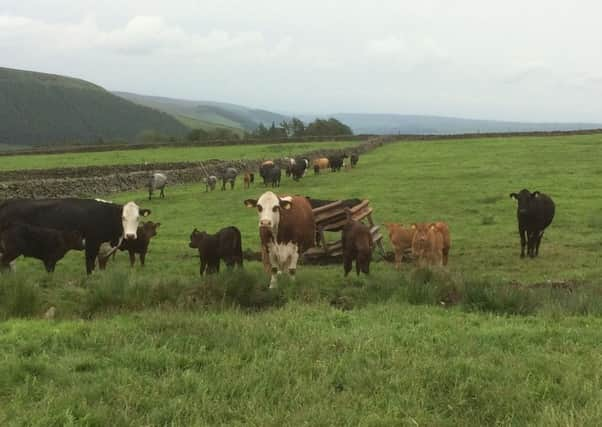The Life on the Farm column with Frances Graham


The panel was made up of three academics, RSPB, a local land owner and a local gamekeeper/farmer. One of the first questions was what the definition of re-wilding is and none of them could come up with a definition because there isn’t one.
Some people could say letting the land become overgrown and some were going a step further and wanting to re-introduce Beavers, and possibly wolves and lynx.
Advertisement
Hide AdAdvertisement
Hide AdThe biggest problem was that the academics and the RSPB already have their own ideas on what they want to see on the land that we presently manage.
When the academics where asked about food twice, they just didn’t think that there was a problem if the stock numbers where reduced further, but there would be less food to be put on our tables. Maybe these people think that their food just comes from the supermarket!
In some extreme cases it feels like the environmentalists are wanting to take over from farmers. Farmers have looked after the countryside, how the Government has wanted it to be farmed all the time, such as having more stock or reducing numbers and putting land into environmental schemes where appropriate.
This system becomes a very low input and low output system.
Environmentalists cost a lot more money to employ than farmers. Then they have to employ someone to look after the land.
Advertisement
Hide AdAdvertisement
Hide AdIt is much easier to just employ farmers to do the job that they have been doing for many years, learning skills from the generations before. Farmers net farm income in 2016 was £28,300 which included BPS payments and environmental schemes. This makes food is cheaper for people to buy and for us to keep the countryside looking like it does today for future generations.
If we didn’t have subsidies then food would have to become more expensive.
We cannot farm cheap food and still put it on our tables and feed the stock.
There has to be some give and take.
This moorland stores thousands of tons of carbon which helps with global warming.
Advertisement
Hide AdAdvertisement
Hide AdI can see that there is room in some places for certain rewilding but the only thing that worries me is that if they did decide to rewild with beavers or other animals, when someone gets injured will they suddenly decide they want things back to how they were before?
The upland and the lowland are not two separate areas, one feeds another, the grass-fed stock from the uplands go to the lowlands to be finished on grass and cereals (all natural products).
Environmentalists don’t realise this, they think they are two separate farming systems. The stock from the uplands are reared on grass and aren’t pumped full off antibiotics. Farmers don’t get enough publicity about the food they produce on these densely populated islands. We maybe don’t speak out enough but the fact is that if we weren’t here and re wilding took over all of the countryside then people might actually realise the job that we do is more important when they have some supermarket shelves empty.
The country is less than 60% self sufficient so if people want to reduce the uplands people would have to eat chlorine chicken, antibiotic pork and chicken and hormone fed beef. Which option would you want?